Ever wondered why the buzz around psychedelic treatment for depression is growing louder by the day? It’s not just a trend; it’s a groundbreaking approach that’s reshaping how we tackle one of the most common mental health challenges. In a world where traditional antidepressants don’t work for everyone, psychedelics offer a ray of hope with their unique ability to provide profound, lasting changes in perspective and emotional well-being. This post dives into the science behind this revolutionary treatment, shedding light on its potential to transform lives, with researchers focusing on outcomes, doses, and support from good ventures. So, if you’re searching for alternatives in battling depression, stay tuned as we unravel the mysteries of psychedelic therapy and its promising horizon.
Key Takeaways
- Psychedelic treatment, especially with psilocybin, offers a promising alternative for individuals struggling with depression, showcasing significant improvements in mood and outlook.
- Understanding the basics of depression and how psychedelics interact with the brain is crucial before considering this form of therapy.
- Safety and legality are paramount; interested individuals should seek treatment through licensed facilities like Project Circle Psilocybin Service Center to ensure a secure and legal treatment process.
- The treatment process typically involves several sessions under the guidance of trained professionals, emphasizing the importance of a supportive setting for therapeutic outcomes.
- Success stories highlight the transformative potential of psychedelic therapy, offering hope and insight into its effectiveness for long-term mental health improvement.
- For those considering this path, the next steps involve thorough research, consulting with healthcare providers, and connecting with reputable centers specializing in psychedelic therapy.
Understanding Depression
Causes
Depression stems from a complex mix of factors. Genetic predispositions play a significant role, making some individuals more susceptible than others. Environmental and psychological elements also contribute, shaping the way one perceives and reacts to their surroundings.
Brain chemistry imbalances are central to depressive disorders. Neurotransmitters, the brain’s chemical messengers, don’t work or change properly in neurons of participants with depression. This imbalance affects mood regulation and emotional stability.
Stressful life events often trigger depression. Loss of a loved one, financial problems, or major life changes can push someone into a depressive state. These events can be the tipping point for those already at risk due to genetic or psychological factors.
Symptoms
Depression manifests through various emotional and physical symptoms. Common feelings include persistent sadness, loss of interest in activities, and overwhelming fatigue. Physical signs might involve changes in appetite or sleep patterns.
This mental health issue significantly impacts daily functioning and relationships. It makes routine tasks feel insurmountable and strains connections with friends and family. Symptoms vary greatly among individuals, with some experiencing mild forms and others facing debilitating effects.
Treatment Options
Traditional treatments for depression include psychotherapy, medication, and lifestyle adjustments. Psychotherapy explores emotional responses and develops coping strategies. Medication helps correct brain chemistry imbalances.
Lifestyle changes, like exercise and diet improvements, also play a crucial role. Recently, psychedelic treatment has emerged as an option. This approach requires careful consideration and a personalized treatment plan to ensure safety and effectiveness.
Impact on Life
Untreated depression severely damages personal and professional lives. It can lead to job loss, broken relationships, and isolation. Long-term depression increases the risk of chronic health conditions such as heart disease.
Seeking treatment is vital for improving quality of life. It helps manage symptoms, restore functionality, and prevent long-term health issues.
Psychedelics Overview
History
Psychedelics have been used for centuries in indigenous cultures for healing and spiritual purposes. They viewed these substances as sacred, offering profound insights and emotional healing, which grants participants significant benefits. The 20th century saw a surge in psychedelic research, with scientists exploring their potential for treating various psychological conditions. However, by the late 1960s, political and societal pressures led to strict regulations, causing a significant decline in this research field.
The 21st century has witnessed a resurgence in interest and research into psychedelic therapy. This revival is fueled by growing evidence of their efficacy in treating mental health disorders, including depression, among participants. Institutions like Johns Hopkins University and Imperial College London are leading the way, conducting groundbreaking studies that could change the future of psychiatric treatment.
Types
Several psychedelics are under investigation for their potential to treat depression. These include:
- Psilocybin, found in magic mushrooms, has shown promise in reducing symptoms of depression with lasting effects.
- LSD (Lysergic acid diethylamide), known for its potent hallucinogenic properties, is being studied for its ability to alter mood and cognition positively.
- MDMA (3,4-Methylenedioxymethamphetamine), often associated with its use as a recreational drug, is being researched for its effectiveness in treating PTSD, which can co-occur with depression.
Each substance has unique properties that could offer therapeutic benefits. However, their legal status varies globally, with most countries classifying them as controlled substances. This classification poses challenges for research and clinical use.
Mechanism
Psychedelics primarily interact with serotonin receptors in the brain. Serotonin is a neurotransmitter that plays a crucial role in mood regulation. By binding to these receptors, psychedelics can induce profound changes in perception, thought patterns, and emotional states in participants.
Research suggests that psychedelics promote brain plasticity in participants, enhancing neural connectivity. This increased plasticity may help break the rigid negative thought patterns characteristic of depression. Patients report experiencing transformative insights during psychedelic sessions, leading to lasting improvements in mental health.
Psychedelic Drugs and Depression
Research Insights
Recent studies by et al have shed light on the antidepressant effect of psychedelics in participants. They show promising results in treating depression, often outperforming classical antidepressants. One key finding is that psychedelic-assisted therapy can lead to significant improvements in mood and outlook for individuals with treatment-resistant depression.
The effectiveness of these treatments is notable. Many patients, referred to as participants, report substantial relief after just a few sessions, contrasting with the weeks or months traditional medications may take to show effects. However, researchers face challenges such as regulatory hurdles and the need for larger, long-term studies to fully understand the potential and limitations of these substances.
How They Help
Psychedelics help participants by resetting the brain’s patterns associated with depression. This process enables individuals to break free from negative thought cycles that fuel their condition. Enhanced emotional openness and introspection play critical roles in this healing process. Patients often experience profound personal insights during their sessions, which contribute to their recovery.
The potential for long-lasting relief after a single session is another standout feature of psychedelic treatment. This contrasts sharply with conventional treatments that typically require ongoing use of medication to maintain their effects.
Case Studies
Anonymized case studies provide concrete examples of how psychedelic treatment can vary among individuals. For instance, one person might find significant relief from a single dose of psilocybin, experiencing an immediate uplift in spirits and motivation. Another individual might undergo a more gradual improvement, needing several sessions to fully realize the benefits.
These stories underscore the importance of professional support throughout the treatment journey. Skilled therapists guide patients through their experiences, helping them interpret and integrate what they’ve learned into their daily lives.
Psilocybin Specifics
What is Psilocybin
Psilocybin is a naturally occurring psychedelic compound. Found in over 200 species of mushrooms, this substance has a rich history. Indigenous cultures have used these mushrooms for centuries during spiritual and healing ceremonies.
Modern research into psilocybin began in the mid-20th century. Since then, it has become a key focus in studies exploring treatments for depression. Scientists are keen to understand how this ancient remedy can benefit today’s mental health challenges.
Effects on Brain
When someone takes psilocybin, their brain undergoes significant changes. Immediately, the compound binds to serotonin receptors, altering perception and mood. But its impact goes beyond the immediate.
Long-term, psilocybin can enhance brain plasticity. This means it helps the brain form new connections. Studies show it significantly affects emotional processing and cognitive flexibility. It makes the brain more adaptable.
One of the most exciting findings is psilocybin’s ability to increase connectivity between different parts of the brain. This could explain why people report feeling more open and connected to the world around them after treatment.
Psilocybin vs. Traditional Medications
Comparing psilocybin with traditional antidepressants reveals stark differences. SSRIs, common antidepressants, often take weeks to show effects and come with various side effects.
In contrast, psilocybin therapy shows a rapid onset of therapeutic benefits. Many patients report significant improvements after just one or two sessions. These effects can last for several months or even years, offering a promising alternative for those struggling with depression.
Moreover, while traditional medications require ongoing use, psilocybin treatment may offer long-term relief from depressive symptoms after just a few sessions. This difference in treatment duration and outcomes highlights psilocybin’s potential as a more effective and sustainable option for managing depression.
Safety and Legality
Legal Status
Psilocybin and other psychedelics face varied legal statuses globally. In the United States, psilocybin remains a Schedule I drug, denoting it as having no accepted medical use and a high potential for abuse. However, recent years have seen shifts. Cities like Denver and Oakland have moved towards decriminalization. Oregon has taken significant steps by legalizing psilocybin for therapeutic use under regulated conditions.
Countries like Canada and the Netherlands offer more lenient regulations for certain psychedelics, allowing for research and therapeutic applications. These changes reflect a growing recognition of the potential benefits of psychedelics in mental health treatment.
The strict legal framework historically hindered research into psychedelics’ therapeutic potential. Yet, as laws evolve, researchers gain opportunities to explore these substances’ effects on depression and other mental health issues more thoroughly.
Safety Concerns
Psychedelic therapy isn’t without its risks. Side effects can include nausea, increased heart rate, and vivid emotional experiences that can be unsettling without proper support. The significance of medical supervision cannot be overstated. It ensures that individuals with pre-existing mental health conditions or those at risk of adverse reactions are carefully evaluated before treatment.
Psychological support is equally crucial. It helps patients navigate the intense emotional landscapes that psychedelics can evoke. Clearing up misconceptions is vital for patient safety—psychedelics, when used under controlled conditions, have shown a low propensity for addiction and long-term negative effects.
Set and Setting
The concept of ‘set and setting’ plays a pivotal role in shaping the psychedelic experience. ‘Set’ refers to the individual’s mindset entering into the experience—emotions, expectations, and personal history all contribute. ‘Setting’ involves the physical and social environment where psychedelic therapy occurs.
Therapists work diligently to create a supportive environment that fosters trust and relaxation, crucial for a positive outcome. This might include comfortable furnishings, soothing music, or nature settings—all designed to put patients at ease.
The patient’s mindset is equally important; those with a positive outlook tend to report more beneficial outcomes from their psychedelic experiences. Pre-therapy sessions help prepare individuals mentally, ensuring they enter the experience with an open mind ready to engage with their inner thoughts under guidance.
The Treatment Process
Preparation Phase
Before diving into psychedelic therapy, patients undergo a thorough preparation phase. This stage is crucial for setting the groundwork for a successful treatment. It involves several key steps to ensure both physical and mental readiness.
First, healthcare professionals conduct comprehensive pre-treatment assessments. These include psychological evaluations and health screenings. They help identify any potential risks or contraindications.
Next, comes the establishment of trust between the patient and therapist. Building a strong rapport is essential for a safe and effective therapy experience. Patients also participate in counseling sessions where they set clear intentions for their journey. This step underscores the importance of having a goal-oriented mindset going into the treatment.
Therapy Session
The actual psychedelic therapy session is a carefully orchestrated event. It typically lasts between 4 to 6 hours, depending on the substance used and individual responses.
During this time, patients are closely supervised by trained therapists who provide emotional support as needed. The use of music or guided meditation is common, enhancing the therapeutic effects of psychedelics. Such elements contribute to creating a comfortable and controlled environment, which is vital for facilitating profound experiences.
A key aspect of these sessions is ensuring that participants feel safe and supported throughout their journey. This allows them to fully engage with and explore their inner thoughts and emotions without fear.
Integration Phase
After the psychedelic session, patients enter the integration phase. This period focuses on making sense of the experience and applying insights to daily life.
Post-session counseling plays a critical role here. Therapists assist individuals in deciphering their experiences and encourage them to reflect on how they can lead to meaningful changes in their lives. Patients learn strategies for incorporating new perspectives or coping mechanisms into their routines.
Support networks become invaluable during this phase. Friends, family, or support groups can offer encouragement and understanding as individuals navigate their transformational journey.
Success Stories
Personal Testimonies
Many individuals have turned to psychedelic therapy as a last resort for treating their depression. Their stories often share a common theme of profound transformation. For some, conventional treatments had failed to provide relief, making the decision to try psychedelics a significant one.
One person described how, after years of battling with severe depression and trying numerous medications without success, a single psychedelic session offered them a glimpse of hope they hadn’t felt in years. They spoke of feeling an emotional release that was both intense and therapeutic, allowing them to confront and process underlying issues contributing to their depression.
Another account came from someone who experienced a radical shift in perspective towards life. This individual highlighted how the treatment helped them foster a deeper connection with themselves and others, significantly improving their mental health and overall well-being. It’s important to note that while many testimonies are positive, responses to psychedelic therapy are highly personal and can vary greatly among individuals.
Clinical Trials
Recent clinical trials have begun to shed light on the potential of psychedelics in treating depression. These studies employ rigorous methodologies to ensure safety and efficacy, often involving controlled environments and follow-up assessments.
One landmark study published in 2020 found that psilocybin therapy significantly reduced depression symptoms in participants for up to four weeks following treatment. The significance of these findings cannot be overstated, as they offer compelling evidence supporting the therapeutic potential of psychedelics for mental health conditions traditionally difficult to treat.
Ongoing and upcoming trials continue to explore various aspects of psychedelic therapy, including optimal dosing, long-term effects, and mechanisms of action. These studies are crucial for understanding how psychedelics can be integrated into mainstream mental health treatment safely and effectively.
Project Circle Psilocybin Service Center
Why Choose Us
Our team consists of highly trained professionals with deep expertise in psychedelic therapy. They hold qualifications that ensure safe and effective treatment. We prioritize safety above all, adhering to the strictest ethical practices.
We offer a patient-centered approach, recognizing that each individual’s journey is unique. Our treatments are tailored to meet personal needs and circumstances. This personalized approach ensures that every patient receives the support they need throughout their therapeutic journey.
Our Approach
At Project Circle, we believe in a holistic approach to treating depression. We combine psychedelic therapy with traditional counseling to address mental health comprehensively. Our protocol emphasizes the importance of set and setting, ensuring patients feel safe and supported.
Preparation and integration are key components of our treatment plan. We work closely with each patient to prepare them for their experience and help integrate their insights into daily life. By tailoring the treatment plan, we ensure it aligns perfectly with individual needs and circumstances.
Booking a Consultation
To begin your journey with us, booking a consultation is the first step. This process includes a thorough screening to ensure psychedelic therapy is suitable for you. During the consultation, you have the opportunity to ask questions and express any concerns.
This initial conversation helps us understand your needs better and determine if our services match your expectations. It’s an essential step in creating a trustworthy relationship between our team and our patients.
Next Steps Towards Healing
How to Prepare
Preparing for a psychedelic therapy session involves both mental and physical preparation. It’s crucial to enter the experience with an open mind and clear intentions. This means reflecting on what you hope to achieve or understand through the session. Setting these intentions can guide your experience and help you focus on areas of your life that need healing.
Physically, it’s important to ensure you’re in good health before the session. Avoid alcohol, recreational drugs, and certain medications in the days leading up to your appointment. A balanced diet, adequate hydration, and good sleep are also key. The team at Project Circle Psilocybin Service Center recommends starting these practices at least a week before your session.
Mentally preparing involves practicing mindfulness or meditation. These practices can help calm your mind and reduce anxiety about the upcoming experience. Remember, having an open mind is essential for allowing the therapeutic process to unfold naturally.
What to Expect
The psychedelic therapy experience is unique for everyone, but there are some common sensations and emotional responses. Participants often report feeling a deep connection to their surroundings, vivid visualizations, and intense emotional breakthroughs. It’s normal to feel a range of emotions, from joy to sadness. These responses are part of the healing process.
On the day of your session at Project Circle Psilocybin Service Center, you will be welcomed into a comfortable setting designed to promote relaxation and introspection. The structure of the day includes an initial consultation, the therapy session itself, and time afterward for reflection with a therapist. The entire process is conducted in a safe, controlled environment under the supervision of trained professionals.
Follow-up support is a critical component of psychedelic therapy. After your session, you’ll have access to integration services to help make sense of your experiences. This may include one-on-one counseling or group therapy sessions where you can share your journey with others who have undergone similar experiences.
Final Remarks
Exploring psychedelic treatment for depression opens new horizons in mental health care. You’ve seen how substances like psilocybin can offer hope where traditional treatments may fall short. Safety, legality, and the treatment process are crucial, but success stories show the potential for real change. Project Circle Psilocybin Service Center stands as a beacon for those seeking alternative paths to healing.
Your journey towards overcoming depression might just find its answer in psychedelics. Remember, you’re not alone in this fight. If you’re considering this path, take the next step. Reach out to professionals, discuss your options, and keep an open mind about what healing could look like for you. The door to a brighter tomorrow is waiting for you to open it.
Frequently Asked Questions
What is psychedelic treatment for depression?
Psychedelic treatment for depression involves using substances like psilocybin to help alleviate symptoms of depression. This approach aims to offer new perspectives and insights, potentially leading to significant improvements in mental health.
How do psychedelics help with depression?
Psychedelics can change the way the brain communicates, allowing patients to break free from negative thought patterns. This can lead to improved mood, increased openness, and a better overall sense of well-being.
What are the risks of using psychedelics for depression?
While promising, psychedelic treatment carries risks such as potential psychological distress during experiences, legal issues depending on jurisdiction, and the need for careful screening to avoid adverse reactions in vulnerable individuals.
Is psilocybin legal for treating depression?
The legality of psilocybin varies by location. In some places, it’s being researched under controlled conditions and could be accessible through special programs or exemptions for therapeutic use.
What does the treatment process with psychedelics look like?
The treatment process typically involves several sessions with trained professionals who guide patients through their psychedelic experiences, combined with therapy sessions to integrate insights gained during those experiences into everyday life.
Can you share success stories of psychedelic treatment for depression?
Numerous individuals have reported significant improvements in their depressive symptoms following psychedelic treatment. These success stories highlight transformative experiences that led to enhanced emotional well-being and life satisfaction.
How can I start my healing journey with psychedelic treatment?
To begin your healing journey, research reputable centers like Project Circle Psilocybin Service Center that offer guided treatments. It’s crucial to consult healthcare professionals to understand if this approach is suitable for you.





